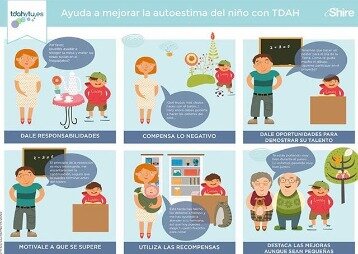Contents:

Cash basis accounting is less accurate than accrual accounting in the short term. Accrual accounting is an accounting method that records revenues and expenses before payments are received or issued. It records expenses when a transaction for the purchase of goods or services occurs. Unlike the cash method, the accrual method records revenue when a product or service is delivered to a customer with the expectation that money will be paid in the future.
Strategies to Keep Your Business Books Organized and Error Free – NewsWatch
Strategies to Keep Your Business Books Organized and Error Free.
Posted: Tue, 11 Apr 2023 14:54:18 GMT [source]
The money for the stock was due after 90 days therefore was paid in August. She has negotiated favorable terms from suppliers which gives her 90 days credit whereas she sells on 15 days credit. Integrating data analytics into your business can help your revenue grow, the organization mitigate risk, or gain insight into your business operations. We give you exclusive insights on the business sale transaction process to help you answer seven important questions. The most successful businesses are constantly finding ways to improve.
Why Conflict Resolution Is Important for Your Business
Businesses incur revenue and expenses at different times based on which type they use. This method is sometimes favored by small businesses, because it is simple and very straightforward to follow. It indicates how much cash the business has on hand and makes calculating tax easier. You must also request a change in your accounting method with the IRS. To do so, file Form 3115, Application for Change in Accounting Method.

Accrual accounting shows account balances based on transactions that may not have settled yet, so you may not have as much cash as your records show you having. This example of Accrual accounting clearly shows the sales that were made in June and the expenses that are directly related to these sales. Accrual accounting results in more accurate Financial Statements, which consequently helps improve the financial decision making for the company. Larger businesses typically have staff – even an entire team – dedicated to tracking and reporting transactions.
What’s the Difference Between Cash Basis and Accrual Basis?
For Tim, this may not be a huge issue, as he would have access to previous statements and his other financial sheets that show a complete picture. As an example, let’s say Tim is the proprietor of the Tasty Tornado food truck. It’s June 1st, and he’s been in business for several years and uses cash-based accounting. He used to pay his vendors when orders arrived, but after adding a catering aspect to his business, he had his vendors switch him to a net30 vendor terms. If you deliver to Brightstar in November and receive payment in December, you would treat it as December revenue.
Accrual accounting is the best for understanding financial data because it shows how much money you earned and spent within a specific period of time. This shows your cash flow broken up into transactions which is how you will know how well your business is performing – this shows when things pick up and when they slow down. On a deeper level, accrual accounting allows you to match up revenue and its corresponding expense starting when the transaction occurs, rather than when payment is transferred. This method lets you understand the current cash flow and compare it to future cash flow .
Having a publicly-traded credit memo or one that may go public is another stipulation of the GAAP guidelines. Publicly traded companies have a duty to report an accurate view of their financial well-being to shareholders. Some sales originating in a prior period may have been recorded within the current accounting period based on the receipt of cash in that period. If so, reverse the sale transaction and record it instead as a sale and account receivable in the preceding period. This will require an adjustment to the beginning retained earnings account. These documents reveal when you receive payments and any invoices that are still outstanding.

The benefit of cash basis accounting is that it tracks the amount of cash a company truly has on hand at any given moment. In comparison, “cash-basis” accounting recognizes revenue only if cash payment is actually received for the product/service delivered. Regardless of the fact that cash payment was never received, the revenue in such a case would be recognized under accrual accounting. If your company is required to report taxes on an accrual basis for any of the reasons above, then you should always account for your internal records on an accrual basis as well. Accrual accounting considers advanced accounts such as payable accounts, current assets, inventory, and long-term liabilities. It records income when a transaction has taken place irrespective of whether the amount is paid yet.
Cash vs Accrual Accounting: What’s The Difference?
All such information is provided solely for convenience purposes only and all users thereof should be guided accordingly. Depending on the nature of your business, and after considering each aspect of the methods described above, you should be able to choose the best-suited approach. You can see a forecast of your monthly burn rate for operating expenses and get an idea of what you need your gross profit to be in order to cover these expenses. We provide third-party links as a convenience and for informational purposes only. Intuit does not endorse or approve these products and services, or the opinions of these corporations or organizations or individuals. Intuit accepts no responsibility for the accuracy, legality, or content on these sites.
Brandywine Realty Trust Announces First Quarter Results – GlobeNewswire
Brandywine Realty Trust Announces First Quarter Results.
Posted: Wed, 19 Apr 2023 20:30:00 GMT [source]
While it may show the cash on hand, the sales a company has recently made or incurred expenses that have not been disbursed will not be reflected in financial statements. This could lead to an inflated or deflated picture of the company’s financial performance depending on the number of outstanding invoices and bills. As with any decision made by a business owner, there are advantages and disadvantages to both the accrual and cash basis accounting methods. In this section, we will explore the pros and cons of cash accounting.
AccountingTools
We’ll explain the basics of the cash accounting and accrual accounting methods, as well as the pros and cons of each so that you can make an informed decision. For example, corporations other than S-corps must use accrual basis accounting if they averaged over $25 million in gross receipts over the past three years. Certain corporations and tax shelters – including those that make sales on credit – are also prohibited from using cash accounting. C corporations cannot use cash-basis accounting or partnerships with average annual gross receipts for the three preceding tax years exceeding $25 million. According to the IRS, you generally cannot use cash accounting if you produce, purchase, or sell merchandise and rely on inventory. If you are a small business taxpayer, you can choose not to keep an inventory if you have average annual gross receipts of $25 million or less for the three preceding tax years.
- This could lead to an inflated or deflated picture of the company’s financial performance depending on the number of outstanding invoices and bills.
- This shows your cash flow broken up into transactions which is how you will know how well your business is performing – this shows when things pick up and when they slow down.
- Beginning in 2018, more small businesses could elect to use cash accounting.
- Then once you hit 5 million in revenue, GAAP forces you to use accrual accounting.
And if you run a hybrid accounting system, smart software will allow you to switch between cash basis and accrual basis whenever you need. Under the cash basis accounting method, a company accounts for revenue only when it receives payment for the products or service it provided a customer. The Tax Cuts and Jobs Act increased the number of small business taxpayers who were entitled to use the cash basis accounting method. As of January 2018, small business taxpayers with average annual gross receipts of $25 million or less in the prior three-year period could use it. ‘Cash Accounting’ is a very simple method of accounting where sales or payment receipts are recorded in the period the money is received, and expenses are recorded in the period they are paid.
Accrual accounting allows you to account for all of your revenue and expenses within a specific time period. This makes it easier to budget for expenses and income to assist with staffing, inventory levels, and other operational areas of concern. One of the other benefits of accrual accounting is that it can also help reduce your tax burden by issuing invoices at the beginning of the year and then at the end of the year.
Choosing overall accounting basis
Without looking at a cash flow statement, we can say with certainty that there is $13,400 in Tim’s account, where he started with $10,000. Cash-based accounting is a method where revenues and expenses are only recognized when the cash exchanges hands. In other words, revenues and expenses are only recorded in the books when cash is paid out or received. On top of that, dealing with your finances and accounting on your own can only add to the headache. At Decimal, we want to help you simplify the process, and we’ve put this guide together to help you better understand your accounting. Here, we’ll lay out the differences between cash and accrual accounting methods and how to choose which is best for your business.
Carried interest election to pay tax as scheme profits arise – Macfarlanes
Carried interest election to pay tax as scheme profits arise.
Posted: Fri, 21 Apr 2023 09:32:12 GMT [source]
Using cash basis accounting, income is recorded when you receive it, whereas with the accrual method, income is recorded when you earn it. They may base big financial decisions and things like loan applications on accrual accounting but use cash-basis accounting to simplify some elements of their tax. Speak to an accountant or tax professional to find out what applies to you. Under this method, revenue is reported on the income statement only when cash is received. The cash method is typically used by small businesses and for personal finances.
Because the cash basis of accounting does not match expenses incurred and revenues earned in the appropriate year, it does not follow Generally Accepted Accounting Principles . The cash basis is acceptable in practice only under those circumstances when it approximates the results that a company could obtain under the accrual basis of accounting. Companies using the cash basis do not have to prepare any adjusting entries unless they discover they have made a mistake in preparing an entry during the accounting period. Customers may have paid in advance for their orders, which would have been recorded as sales under the cash basis of accounting.
It must be noted businesses that are considered medium or large with sales above $5 million across three years must use accrual-basis accounting. Cash-based accounting is suitable for your business if you have simple financial transactions and meet the gross receipts test. Accrual basis accounting provides a more accurate picture of a company’s financial health for complex financial transactions. The cash method is a more immediate recognition of revenue and expenses, while the accrual method focuses on anticipated revenue and expenses. The two accounting methods that have a major difference in their implementation are cash basis accounting and accrual accounting.
If any of these questions are yes, accrual basis accounting might be best for your company. Investors and external parties need more complex reporting that shows how the business is performing. In a nutshell, when you receive payment from your customers and then immediately write it down in your books, that’s cash accounting. But if you wait until the product is delivered or service is rendered before you write it in your books, then that’s accrual accounting. Because of its simplicity, many small businesses and sole proprietors use the cash basis method as their primary method of accounting.
Their improvements often involve finding and fixing bottlenecks that may linger virtually unseen in the… To learn more about relationship-based ads, online behavioral advertising and our privacy practices, please review Bank of America Online Privacy Notice and our Online Privacy FAQs. Also, if you opt out of online behavioral advertising, you may still see ads when you log in to your account, for example through Online Banking or MyMerrill. Banking products are provided by Bank of America, N.A., and affiliated banks, Members FDIC, and wholly owned subsidiaries of BofA Corp. MLPF&S is a registered broker-dealer, registered investment adviser, Member SIPClayer, and a wholly owned subsidiary of BofA Corp. Our mission is to empower readers with the most factual and reliable financial information possible to help them make informed decisions for their individual needs.

As our money systems and ownership structures became more complicated, we needed a more robust way of tracking it all. In the late 15th century, an Italian Friar by the name of Luca Pacioli recorded the methods used by Venetian merchants at the time. The Friar provided the first written account that introduced double-entry bookkeeping and the concepts of credits and debits. Accrual accounting is a method where income and expenses are recorded regardless of whether payments have been received or made.
Accrual accounting involves tracking income and expenses as they are incurred instead of when money actually changes hands. Cash accounting is much simpler, but accrual is required for certain businesses and preferable for others to leverage certain tax strategies. Accrual accounting matches revenues to expenses at the time in which the transaction occurs rather than when payment is made or received. This method allows the current cash inflows or outflows to be combined with future expected cash inflows or outflows to give a more accurate picture of a company’s current financial position. Many small and start-up companies will use the cash basis accounting method because it is typically the simpler of the two methods from an accounting standpoint. At this point in a business, companies also tend to place a lower level of importance on the financial information of the company, so the cash method is sufficient for their purposes.
- Under accrual accounting, the cash balance shown on the balance sheet might not be an accurate representation of the company’s actual liquidity – which explains the importance of the cash flow statement.
- However, deciding between cash vs. accrual accounting methods is a critical one that will have far-reaching implications.
- Businesses that use accrual accounting recognize income as soon as they raise an invoice for a customer.
Maintaining a series of documents year over year and constantly back-checking for changes and updates takes a lot of time. As the business grows, it will probably need to outsource maintaining business records or upgrading software tools. Choosing the right accounting method requires understanding their core differences. That being said, the cash method usually works better for smaller businesses that don’t carry inventory. If your business is a corporation that averages more than $25 million in gross receipts over the last 3 years, the IRS requires you to use the accrual method.
